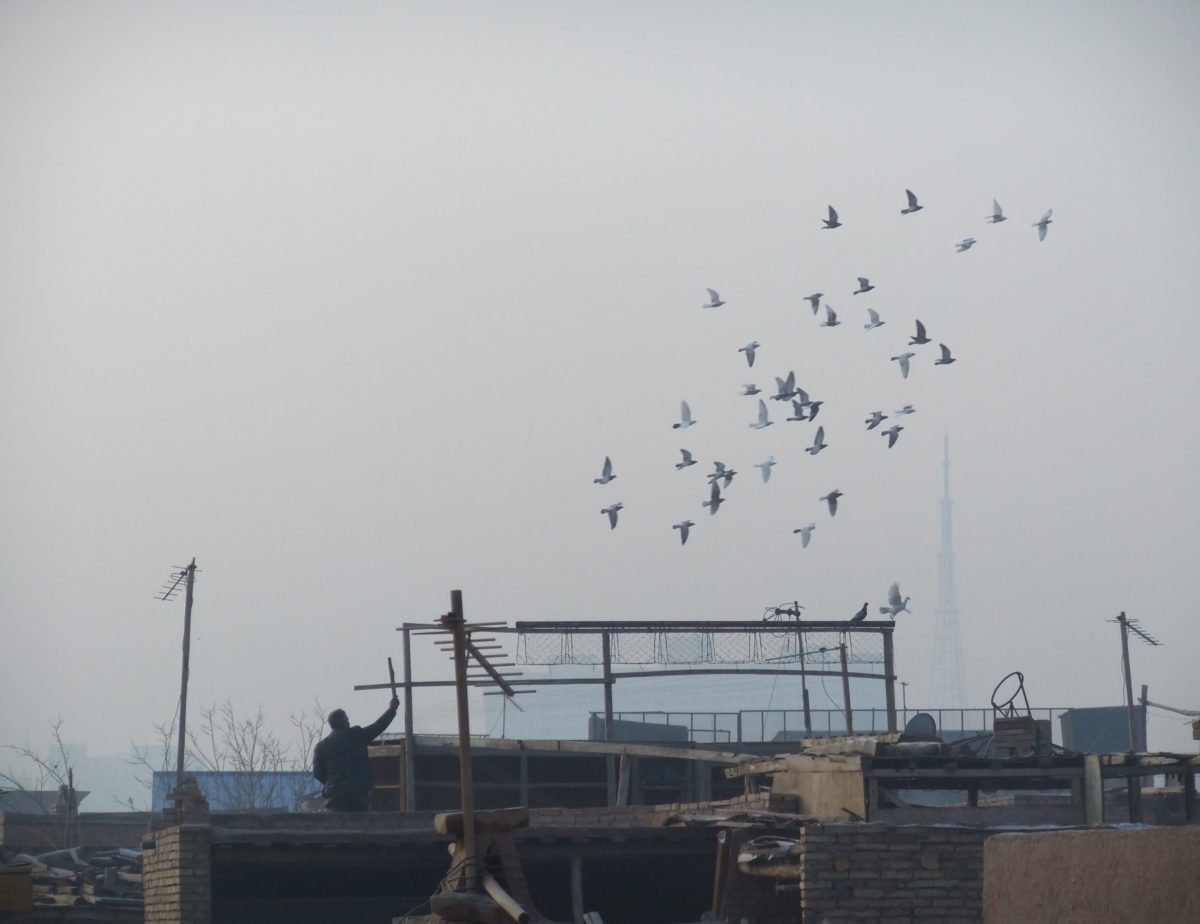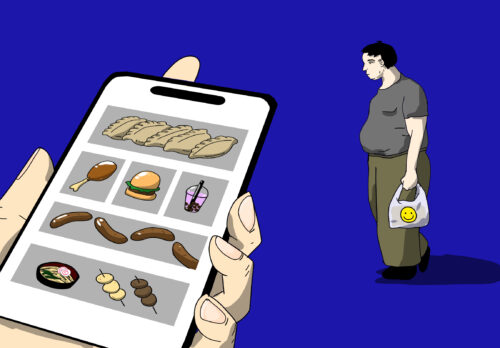Exiled Uyghurs push UN to press China for account of relatives detained for being Muslim
The Working Group on Arbitrary Detention demands release and reparations for Uyghurs jailed by Beijing illegally, for no crime.

Exiled Turkic Muslim activists looking for relatives missing in China have succeeded in pushing the United Nations to try to force Beijing to admit that it targeted and jailed Uyghurs for their faith, not for any crimes, and to release them within six months with reparations.
Acting on evidence gathered by the Istanbul-based group Chinese Concentration Camp Victims (CCCV), the UN Working Group on Arbitrary Detention said in an April report that China’s detentions of Uyghurs were based on their Muslim identities and thus an illegal breach of the Universal Declaration of Human Rights.
“After years of marches, vigils, rallies, and trips to Ankara’s Chinese Embassy and its consulate in Istanbul to present our case, the Working Group report has taken our campaign to a higher level,” Uyghur Medine Nazimi, the CCCV group leader, told The China Project at a June 21 news conference in Istanbul to publicize the report’s findings about the missing family members of three exiled Uyghurs.
“China might not take any notice of us, but they have to listen to the UN,” Nazimi said.
Nazimi and other members of the CCCV try to help the roughly 50,000 Uyghurs living in Turkey by pressuring the UN and Beijing to account for the status of their relatives lost in northwestern China among the estimated 1 million Uyghurs put in detention centers and jails there. The detentions began in 2016 under Chén Quánguó 陈全国, the former governor of China’s Xinjiang Uyghur Autonomous Region. In August 2022, they were called “crimes against humanity” by the outgoing UN High Commissioner for Human Rights.
“This is a very important decision,” said Gülden Sönmez, the Turkish human rights lawyer representing the families of the three Uyghurs whose cases were researched by the CCCV and cited in the UN Working Group report. Sönmez has submitted an additional 11 cases of disappeared Uyghurs to the UN Working Group and is hoping for similar results.
Petitioners
Though the CCCV first asked the UN Working Group on Arbitrary Detention to look at their research and pressure China on May 8, 2022, over a year later, Sönmez told The China Project she was “happy with the result.” Two months after the UN Working Group asked the Chinese government to reply to its findings about the disappearance of Uyghurs like Naghmat Hamit, 58, a reply came back, a month past the deadline the UN set.

The Chinese government’s reply to the UN Working Group said Hamit was arrested on a terrorism-related charge. After seven months in detention awaiting a decision, the Yining Municipal People’s Court sentenced Hamit without trial in April 2018 to 19 years and 10 months in jail. Hamit currently is serving his sentence in Wusu Prison in a remote and mountainous area not far from Xinjiang’s border with Kazakhstan.
Hamit attended a family reunion in Turkey in 2016 and, four months after returning to Xinjiang in 2017, he was arrested without a warrant or due process. Apart from two weeks in 2019 when he was sick, Hamit has been held incommunicado ever since.
With the UN’s acceptance of the CCCV’s findings, Sönmez soon will be traveling to Turkey’s capital, Ankara, to the Chinese Embassy there, “demanding proof that her client’s relatives are free, healthy, and safe,” she told The China Project.
Also detailed in the CCCV’s research and addressed by the UN Working Group report and its subsequent request for a reply from Beijing were the cases of the missing Uyghurs Tajinisa Yimin, 58, and Dilixiati Wulibaiyi, 61.
Tajinisa Yimin — whose 67-year-old husband, Nuri Mettursun, died in a camp in 2017, five months into a five-and-a-half-year sentence — was arrested suddenly herself on July 25, 2021, with no clear charges. With no access to lawyers or contact with the outside world, her case has dragged through Xinjiang’s legal system.
After being taken away, Yimin was detained for over a month without charges, until September 2021, when authorities approved her formal arrest, alleging that she had participated in a terrorist organization. It wasn’t until December 20, 2021, that Chinese authorities gave the go-ahead to transfer her for prosecution. Yimin’s case is still being investigated. Meanwhile, all attempts to learn her whereabouts have come up empty.

Yimin’s son, Nurmemet Mettursun, a Uyghur health practitioner in Istanbul, worries about his mother’s health and feels powerless being so far away.
“We have no idea where she is or why they have taken her. It has been two years since we have had any news of her,” Mettursun told The China Project. “She is an old woman. How can she be a terrorist?”
The third detainee whose case the CCCV brought to the UN Working Group is Dilshat Oralbay, whose name spelled in Chinese pinyin romanization is Dilixiati Wulibaiyi. Oralbay was arrested at his home in the northern Xinjiang city of Kuytun on March 6, 2018. Like the others, Oralbay was taken away incommunicado, without a warrant or access to a lawyer.
China news, weekly.
Sign up for The China Project’s weekly newsletter, our free roundup of the most important China stories.
In their response to the UN Working Group, Chinese authorities confirmed that, “for the crime of aiding terrorist activities and refusing to provide evidence of terrorist and extremist crimes, Mr. Wulibaiyi was sentenced to 15 years in prison on 8 April 2018 and is currently serving his sentence in Xinyuan (Uyghur name, Künes) Prison,” a mountainous area in the north of Xinjiang, near the border with Kazakhstan.
“They told him his mind had been poisoned by living with foreigners”
The Oralbay family, including younger sister Gulaysha, who lives in Istanbul, suspect that Dilshat’s business trips to Kazakhstan, his visits to mosques, and his downloading of WhatsApp to his mobile phone, which is forbidden in China, contributed to the unwanted police attention and his eventual arrest. With no charge against him, it is impossible to know, leaving his family in the dark.

Born to a Kazakh father and a Uyghur mother, Dilshat Oralbay was a loyal member of the Chinese Communist Party, and a Chinese-Kazakh-Uyghur translator with 30 books to his name. After early retirement, he opened a window making business in Kazakhstan that meant trips back and forth.
When Chinese police first called Dilshat in to “drink tea” — a euphemism for first-stage interrogation — “they told him his mind had been poisoned by living with foreigners,” Gulaysha told The China Project, unable to contain her tears. “Police also took two younger sisters, Bahtigul, 43, and Bagila, 40. We have had no news about them, either.”
“My brother was no terrorist,” Gulaysha said. “His books were all translated with government permission.”
Illegal detentions
Summing up their findings, the UN Working Group’s report said there was no evidence that the three missing Uyghurs were granted due process under Chinese law and said that it “regretted the failure of the (Chinese) Government to engage” with the Working Group “constructively and in a timely fashion.” Details of the three cases were “exceptionally scarce,” the UN said.
“Enforced disappearance is absolutely prohibited by international law and constitutes a particularly aggravated form of arbitrary detention,” the UN report said.
The UN Working Party on Arbitrary Detention concluded that Uyghur detention in all its forms, without access to lawyers, or due process, constitutes multiple prima facie violations of the Universal Declaration of Human Rights and the Body of Principles for the Protection of All Persons under Any Form of Detention or Imprisonment.
“Their prolonged incommunicado detention in a secret place may amount to torture as described in article 1 of the Convention against Torture and Other Cruel, Inhuman or Degrading Treatment or Punishment,” the UN report said.
“The Working Group concludes that the arrest and detention of these three individuals was based on discrimination on the basis of their belonging to the Uyghur minority and being of Muslim faith, in violation of article 2 of the Universal Declaration of Human Rights,” the UN report said, adding disquiet over the “total secrecy” that surrounds the fate and whereabouts of the detained.
The Working Group demanded the three individuals be released and compensated within six months in accordance with China’s obligations under the Universal Declaration of Human Rights. Failing a response from Beijing, the Working Group said it would notify the UN Human Rights Council.
Members of the CCCV each have their own story of loss and separation. Some fled religious persecution in their homeland several years ago to take refuge among the burgeoning Uyghur diaspora community in Turkey. As the clampdowns at home gathered momentum in 2016, some left in a hurry, abandoning family members who were unable to get passports. Husbands, wives, children, and parents were left behind, many of whom then were corralled into so-called “re-education camps,” for wearing headscarves or growing their beards in keeping with Muslim custom. Many small Uyghur children were taken to Chinese-run orphanages to be brought up by the state. Many have not been heard from since and their trail has gone cold.
Nazimi’s own younger sister, Mevluda, disappeared in 2018 after returning to Xinjiang from Turkey to care for her ailing mother. Slowly, other Uyghurs who lost relatives came out of the woodwork in Turkey looking for answers. By 2020, 60 exiled Uyghurs representing more than 120 missing family members teamed up to form the CCCV to fight China’s illegal detentions.
It has been a long and painful struggle for the group. The CCCV started with demonstrations outside the Chinese Consulate in Istanbul and by petitioning Turkish government officials. In 2020, Chinese consuls said that a dialogue with the CCCV was out of the question until every document related to the cases of the lost relatives was translated into Chinese. Bowing to the demands, CCCV members translated 5,199 papers and packed them into a van that delivered them to the gates of the Chinese Consulate in Istanbul. Upon arrival, they were refused entry.
A plan to educate ordinary Turks about the plight of their Muslim brothers, the Uyghurs, saw core members of the CCCV convoy through 31 cities and towns across Turkey to meet civic leaders and rally in public squares. The Turkish government response was sympathetic on the whole but, according to Nazimi, pressure from Beijing sometimes muddies the waters for Ankara. Last year, a rally in Istanbul was broken up by Turkish police, “for no obvious reason,” Nazimi said.

The movement to support Uyghurs whose family members are missing has grown with a groundswell of Turkish media support. The UN Working Group statement is the first concrete sign that the international community is taking them seriously.
“We are extremely encouraged by their report and the steps they are taking to confront China,” Nazimi said.
The CCCV’s next move is to knock on the door of the Chinese Embassy in Ankara and present the UN Working Group’s findings. The last time it petitioned Ankara was in February 2021 when members who had lost relatives staged a 17-day sit-in there. They were hoping for a response from Liu Shaobin 刘少宾, China’s ambassador to Turkey since 2020, but their efforts were stonewalled and a request for an audience rejected.
“We should be more successful this time,” said Nazimi.
With pro-bono help from Turkish lawyers, each time the CCCV details the case of a missing Uyghur to the UN Working Group, translation and administrative costs still amount to around $1,000 for each individual.
“It is not a cheap process, and we rely on donations and goodwill,” Nazimi said. “We still have a long way to go, but we have always believed that somehow there would be a legal way to challenge China, and today’s result is proof of that.”
Nazimi, like most Uyghur rights campaigners, never set out to be an activist. The 40-year-old mother of three with a background in business arrived in Istanbul to complete a master’s degree. After the disappearance of her sister, life changed forever.
“I knew I had to get involved and spend every waking moment to free her and the others,” Nazimi said. “The early rebuffs were bruising and hostile, but we always held onto the hope our efforts would bear fruit one day. I think today’s result shows that a change is about to happen.”




